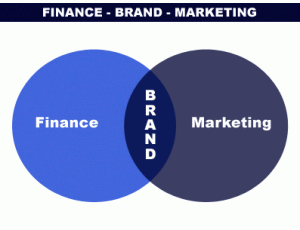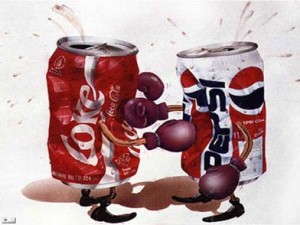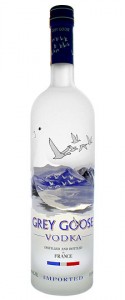Apr
08
2011

Our last marketing class got me thinking about all the known and unknown marketing tactics that are out there. I think that finishing the course on an ethical note is very appropriate and can only be good for the future of marketing. As more and more sophisticated marketing strategies and tactics are being employed the need to consider ethical issues increases and as we saw in class, it is not so much a black and white, but most of the time, a gray area. Like Tamar said quite well in class, the key point here is about motivation and intention. Thus I think if we can use these two components as a base, it should make things easier in assessing marketing ethical issues. For example, in our “downsizing” story that was presented in class, while there is nothing illegal about reducing package size (as long as the weight is properly stated), the comments of the company’s PR person did not seem consistent or genuine. To state that the company shrank the package/portion of its product at the sole request of the consumer is only telling half of the story. If you do so while still charging the same price then it is quite obvious that your intention was and is to increase your margin or profit. The deception here would be to try to say otherwise, and this false intention is unethical.
In my opinion, company should realize that consumers are more and more well informed and will eventually figure out any deceptive marketing tactics. Do you really want to risk your brand equity over this? Ethical marketing is IMO needed for the successful implementation of value-based marketing. Therefore, in the long-term, ethical marketing is a condition for sustainable profitability. If companies were smarter, they would actually use this as an opportunity to differentiate themselves from other “unethical” or “ethically deficient” competitors, and build brand equity in the process.

Solution: I believe that as long as the motivation and intention of a company is to provide value to its customers then ethical issues will not be a major issue. This, ultimately will more than often translate into increased sales volume and profitability. Like the saying goes: “you can fool your customers once, but you can’t fool them twice.” Remember that the more “unethical” inclined your company is, the more room you make for your competitors to move in and act as “more ethical” and grab precious market share.
Dear Companies,
Wise up. Be ethical.
Sincerely,
Luke
Apr
08
2011
I’m not sure why I’m so upbeat today. Perhaps because it’s the last day of class or perhaps because it’s the start of The Masters! (a major golf tournament) http://www.masters.com/en_US/. My feeling is that it has something to do with both.
In honors of the 2011 Masters tournament and the Fedex Cup (at end of the season), I decided to post some of the most hilarious and effective commercial ads from Fedex http://fedex.com/. The company was successful in segmenting and targeting corporate executives, which many are golf fanatics. The truth is that we all know what Fedex or UPS does. They are couriers. They carry parcels from point A to point B. Pretty boring stuff right? Well not according to Fedex. Their candid, while exaggerated depiction of the truth, approach creates brand exposure and equity by cleverly targeting decision making executives. Their ads are funny, refreshing, and clever. Their slogan “We understand” is straight to the point and portrays a sense of confidence and reliability. But best of all, their ads (and vicariously their brand) gets talked about and remembered!
Enjoy!
Luke’s #1 pick

Luke’s #2 pick

Luke’s #3 pick

Luke’s #4 pick

Luke’s #5 pick

Apr
06
2011
Being a finance student, I thought I’d try to find a link between my discipline and marketing. I believe I found one.
In finance, the share value of a company often resides in the market perception and expectation of future earnings. It does not matter, to some extend, what its intrinsic measure is. What the market perception says is what counts. Well, this concept is quite similar to the marketing concept of positioning and consumer perception. It primarily has to do with how the market perceives your products and company as opposed to anything else. This perceived value will eventually translate and add to the company’s brand equity. And I’m a big fan of brand equity! For me, it’s really synonymous of “the true market value of a company” – marketing-ly speaking.

This sentence from Dave Dolak’s blog http://davedolak.blogspot.com/2007/05/what-is-brand-equity.html summarizes the concept well: “A brand is nearly worthless unless it enjoys some equity in the marketplace. Without brand equity, you simply have a commodity product.”
Below is a good description of brand equity from Dave’s Blog. Pay attention to the wording, as much of it is interchangeable between both the discipline of marketing and finance.
“Brand Equity is the sum total of all the different values people attach to the brand, or the holistic value of the brand to its owner as a corporate asset. Brand equity can include: the monetary value or the amount of additional income expected from a branded product over and above what might be expected from an identical, but unbranded product; the intangible value associated with the product that can not be accounted for by price or features; and the perceived quality attributed to the product independent of its physical features.”
Apr
06
2011
After reading Karen Robinson-Rafuse’s blog: https://blogs.ubc.ca/karenrrafuse/2011/02/10/business-school-the-benefits-of-branding/, I stopped and thought about how influential the “Sauder” brand really was… then I realized something. The reason why I had a difficult time pinpointing this was due to the fact that my perspective was from the inside, i.e. I was part of the brand! (and if you’re reading this, you are probably as well).
 In a way you could say that generally speaking, admissions’ main job is to ensure that the students admitted will only add to the brand equity of the Faculty of Commerce… oops I mean the Sauder School of Business. So to all of you who intend to apply to the school; go pickup a marketing book for yourself. It will may very well help you in your application in branding yourself to the brand of the school.
In a way you could say that generally speaking, admissions’ main job is to ensure that the students admitted will only add to the brand equity of the Faculty of Commerce… oops I mean the Sauder School of Business. So to all of you who intend to apply to the school; go pickup a marketing book for yourself. It will may very well help you in your application in branding yourself to the brand of the school.
Also, if you look deeper into the details you will notice many sub-brandings within the Sauder brand. You could even consider them as product lines of the school. These are the specialization departments such as Finance, Accounting, Marketing, Real Estate, Human Relations, Management Information System, TLOG, etc.
So how do I feel about being a brand you would ask? Pretty good actually. You feel like you’re part of something bigger, and as long as it grows, so will your personal brand.
Apr
05
2011
Reading through Betty Tang’s blog: http: https://blogs.ubc.ca/bettytang/2011/01/26/coke-vs-pepsi/, it was interesting to see how brand perception plays a important role in our purchasing decisions. Well since I previously blogged about how colors are perceived by consumers, I can’t be too surprised. However it’s always intriguing to see how people don’t always act rationally. You would think that in a cola product, taste would be everything (at least the most important component). Apparently not. As Betty stated and quoted: “… Pepsi won taste tests when subjects were blindfolded, but when labeled, the majority of the same subjects would suddenly prefer Coke… The conclusion of this experiment in neuroscience journals? “Branding is mind over matter”.”

All this talk about Coke and Pepsi, not only makes me thirsty, but also causes me to reflect on a another company that seems to fully understand this “mind over matter” concept. That company is: Grey Goose. Grey Goose was able to penetrate the vodka market, not with the quality of its liquor, but rather with the huge marketing campaign the company put together in positioning itself as a quality and premium vodka brand.

It is not so much the quality of the product that will ultimately generate sales, but the perception that it is, that will.










